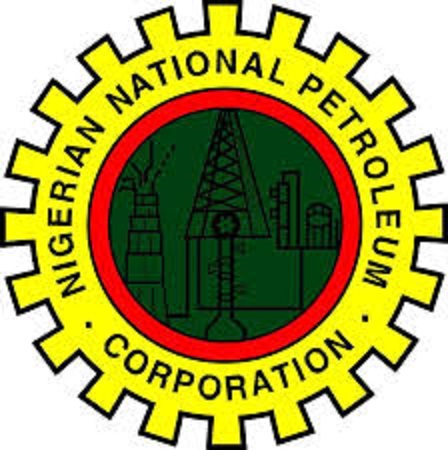As the Nigerian National Petroleum Company Limited (NNPC) continues to default in its contribution to the federation account, Saudi Aramco, owned by the Saudi Arabian government on Sunday posted an 82-per cent jump in its first quarter profits.
While Nigeria has failed to take advantage of the prevailing positive market conditions, Aramco announced that its profits were enhanced by a global surge in oil prices that has made it the world’s most valuable company.
Nigeria is neither able to increase production, due to degenerating infrastructure, nor is it able to efficiently utilise the limited resources it gets from crude oil sales, because of huge petrol subsidy costs.
The country does not refine a drop of petroleum product consumed in the country and, therefore, has to import them since all its four crude refineries have not functioned for years.
In addition, Nigeria has blamed massive oil theft and outright sabotage for its inability to meet the quota allocated to it by the Organisation of Petroleum Exporting Countries (OPEC), losing as much as 400,000 barrels per day to lack of capacity.
But the announcement by the Saudi government continued a string of recent positive economic news for the country, where a booming oil sector is fuelling the fastest growth rate in a decade.
Aramco’s net income of $39.5 billion was up from $21.7 billion compared with the same period in 2021, “primarily driven by higher crude oil prices and volumes sold, and improved downstream margins,” it said in a press release.
The latest financial results were published four days after Aramco dethroned Apple as the world’s most valuable company, with shares worth $2.42 trillion compared to Apple’s $2.37 trillion.
Although the production levels and oil reserves held by Saudi Arabia are far larger than that of Nigeria, exceeding over 250 billion barrels in reserves and over 10 million daily production, compared to Nigeria’s 37 billion barrels reserves and roughly 1.4 million bpd production, the economy of Africa’s largest oil producer was expected to have stabilised due to rising prices.
But that has remained elusive, despite Brent oil, Nigeria’s benchmark, exceeding $100 in the last few months, an occurrence rarely seen.
In 2018 and 2019, NNPC posted N803.14 billion and N1.7 billion losses at the end of its financial operations for those years, respectively, but recorded a controversial N287 billion profit in 2021. That would be about $683 million at current official rates and $486 million at the black market.
Since this year, the national oil firm has been unable to remit a penny to the federation account, jointly operated by the federal, state and local governments.
NNPC Group Managing Director, Mele Kyari. has consistently said that President Muhammadu Buhari does not interfere in the operations of the organisation. By implication, all the company’s failings should be blamed on the firm alone.
Earlier, in March, Aramco reported a 124 per cent net annual profit increase for 2021. Although NNPC has promised to release its 2021 Audited Financial Statement (AFS), it had yet to do so at the time of this report.
But the firm, Saudi Aramco, remains the kingdom’s “crown jewel”, as described by the AFP and continues as the primary source of government revenue. It has made progress despite being faced with security challenges from the war, which involves a Saudi-led military coalition against Yemen’s Huthi rebels, who have repeatedly targeted the kingdom, including Aramco sites.
A two-month truce in the war has generally been holding since it started in April, but in 2019 Huthi-claimed aerial assaults on two Aramco facilities in eastern Saudi Arabia that temporarily knocked out half of the kingdom’s crude production.
A March attack by the Huthis on facilities of the largely state-owned firm caused a “temporary” drop in production.
The net income for the first quarter was a record for Aramco since its initial public offering in 2019. Also on Sunday, Aramco announced it was issuing 20 billion bonus shares to shareholders — one share for every 10 shares already owned. A dividend of $18.8 billion will be paid in the second quarter, it said.
“Against the backdrop of increased volatility in global markets, we remain focused on helping meet the world’s demand for energy that is reliable, affordable and increasingly sustainable,” Aramco president and Chief Executive, Amin Nasser, said.
In early May, Saudi Arabia reported its fastest economic growth rate in a decade, as a booming oil sector fuelled a 9.6 per cent rise in the first quarter over the same period of 2021, AFP said.
The world’s biggest oil exporter has resisted US entreaties to raise output in an attempt to rein in prices that have spiked since the Ukraine war began.
As the war got underway, Saudi Arabia and the United Arab Emirates stressed their commitment to the OPEC+ oil alliance, which Riyadh and Moscow lead, underscoring Riyadh’s and Abu Dhabi’s increasing independence from long-standing ally Washington.
Saudi Arabia’s Gross Domestic Product (GDP) is expected to grow by 7.6 per cent in 2022, the International Monetary Fund (IMF) said in April.
The country has sought both to open up and diversify its oil-reliant economy, especially since Mohammed bin Salman’s appointment as crown prince in 2017.
Aramco floated 1.7 per cent of its shares on the Saudi bourse in December 2019, generating $29.4 billion in the world’s biggest initial public offering.
In February, the kingdom shifted 4 per cent of Aramco shares, worth $80 billion, to the country’s sovereign wealth fund, a move analysts saw as a possible prelude to further opening up the oil giant.




